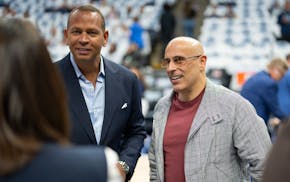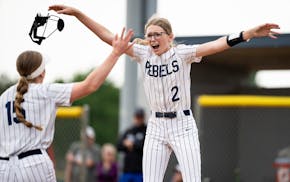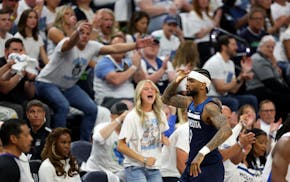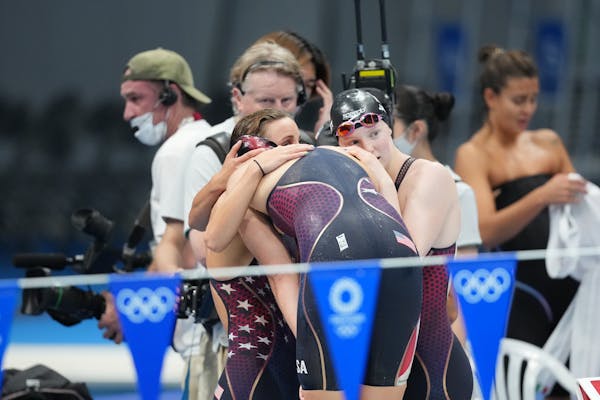TOKYO — It is strange to watch an Olympic sport based on stillness, but that is what the 50-meter three-position rifle competition is about.
Patrick Sunderman spent about two hours on Monday kneeling, laying and standing as still as possible. His rifle barely recoiled, the only movement visible when he pulled the trigger being a wispy outpouring of smoke from the barrel.
He stood in a line of 39 shooters at the Asaka Shooting Range, vying for a top-eight spot and berth in the Olympic final later in the afternoon. His scores belied his calm exterior, fluctuating from eighth to second to 15th to finally 12th.
In his first Olympics, the Farmington native missed a chance to advance to the finals with a score of 9.767. The eighth-place score was 9.800. USA teammate Nickolaus Mowrer finished 26th with 9.683 points.
"I felt like it was a strong performance,'' Sunderman said. "There were a couple of mistakes here and there that kind of got me but overall I fought really hard all the way until the end. I did the best I could. I'm pretty happy with it.
"Disappointed, at the same time. But very happy and grateful for the experience."
Sunderman attended Farmington High and West Virginia and now shoots under the auspices of the U.S. Army. He is 27. The Paris Olympics are three years away.
"I'm not done,'' he said. "I mean, I'm going to keep on fighting for every match, every opportunity I can to represent my country."
Sunderman's scores placed him within reach of the final for most of the competition. He scored 393 points while kneeling, 398 while prone and 381 while standing.
The shooters stood under a large canopy, firing shots across an artificial field, past posts holding cloth to indicate wind direction, into a small black target on a field of white.
Their rifles look like something stolen from a "Star Wars" set. They are long and stripped down and lean.
The shooters wear what look like thick aprons with padded elbows and what look like modernized cowboy chaps with knee pads.
During the standing portion, Sunderman frequently took breaks, and deep breaths.
"Standing was a fight,'' Sunderman said. "I just had to fight for what I got.
"Well, now I know what it's like, since it's my first one. I don't think I'm ever going to be able to replicate what it was like out there, or explain it in words. My couple of takeaways is just to learn — I need to learn how to get a little more steady in standing, under the pressure. Work on pressure situations, I guess is what it comes down to.''
Sunderman's first Olympics was also the first pandemic Olympics.
"It was a blessing to be here,'' he said. "I'm super grateful that I was able to have this opportunity and that it was hosted and that we were able to compete.
"I bet there's not going to be another Olympics quite like this one. I got to experience it and take it all in and I'm grateful for that. Disappointed in the result, but there's nothing I can do now other than talk about it."

Neal: It's time to see what A-Rod and Marc Lore can do

Champlin Park shuts out Rogers 1-0 to win Class 4A, Section 5 softball title

Twins affiliate rained out more than any team: 'Never seen anything like this'

Three key Timberwolves players could enter free agent market


